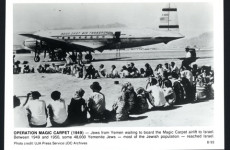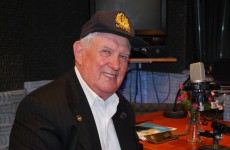Israel’s first Ambassador at the UN and a Foreign Minister
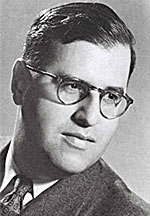
A brilliant orator, Eban served as diplomat, government minister and Member of Knesset. As Minister of Foreign Affairs, he sought to consolidate Israel’s relations with the United States and secure association with the European Economic Community. Before and after the Six-Day War, he led Israel in its political struggle in the UN.
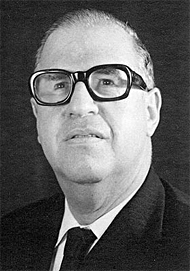
Abba Eban, orator, Israeli statesman and diplomat, Foreign Minister from 1966 to 1974, was born in Cape Town, South Africa, and brought up in England. He studied oriental languages and classics at Cambridge University, England, where he was a lecturer in Arabic from 1938 to 1940. He was already a public speaker of caliber and renowned for his presence at debates on the Middle East.
During World War II he served in the British Army in Egypt and Mandate Palestine, becoming an intelligence officer in Jerusalem, where he coordinated and trained volunteers for resistance in the event of a German invasion.
In 1946, the Jewish Agency appointed him political information officer in London, where he participated in the negotiations with the British government and the UN concerning the establishment of the State of Israel.
When Israel became independent in 1948, he was appointed its first Ambassador at the UN.
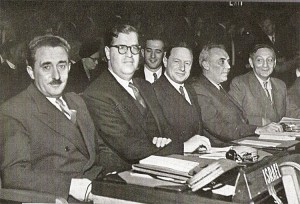
From 1950 until 1959 Eban was both Israel’s ambassador in Washington, D.C., and chief delegate to the UN. On his return to Israel in 1959, Eban was elected to the Knesset as a member of the Mapai party, and served under David Ben-Gurion as Minister of Education and Culture from 1960 to 1963.
From 1963 to 1966, he was deputy to Prime Minister Levi Eshkol. He was also president of the Weizmann Institute at Rehovot from 1959 to 1966.
As Israel’s Foreign Minister from February 1966 to 1974, Eban tried to strengthen relations with the United States and to associate Israel with the European Economic Community.
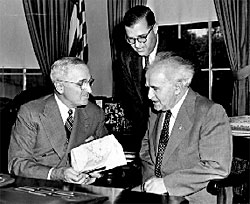
During and after the Six-Day War of June 1967, he led Israel’s diplomatic struggle in the UN. Following the Yom-Kippur War of October 1973, Abba Eban helped bring about a disengagement of Egyptian and Israel forces in Sinai.
Eban continued to serve in succeeding Knessets, but outside the ministerial sphere, as a member and later as Chairman of the Foreign Affairs and Defense Committee, until he retired from politics in 1988. He was widely admired for his brilliant oratory outside Israel and his statesmanship at the UN on Israel’s behalf, including some dramatic oratory. He wrote a scathing article on the infamous UN ‘Zionism = Racism’ Resolution in 1975.
Abba Eban on Zionism (Quoted by UN Ambassador Chaim Herzog, November 10, 1975 in response to the Zionism is racism resolution):
‘Zionism is nothing more – but also nothing less – than the Jewish people’s sense of origin and destination in the land linked eternally with its name. It is also the instrument whereby the Jewish nation seeks an authentic fulfillment of itself. And the drama is enacted in twenty states comprising a hundred million people in 4 1/2 million square miles, with vast resources. The issue therefore is not whether the world will come to terms with Arab nationalism. The question is at what point Arab nationalism, with its prodigious glut of advantage, wealth and opportunity, will come to terms with the modest but equal rights of another Middle Eastern nation to pursue its life in security and peace.’
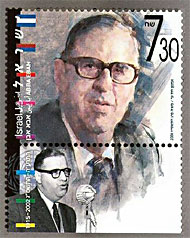 A figure of multiple accomplishments, Eban was fluent in ten languages, with the dual vocation of statesman and erudite academic. Throughout his career, he found time to publish meticulous and detailed historical works based on his vast knowledge and personal experience.
A figure of multiple accomplishments, Eban was fluent in ten languages, with the dual vocation of statesman and erudite academic. Throughout his career, he found time to publish meticulous and detailed historical works based on his vast knowledge and personal experience.
His books include Voice of Israel (1957); My People (1969); My Country (1972), and Personal Witness (1992), as well as An Autobiography. After his retirement, he was able to dedicate more time to writing and lecturing, including essays and books The New Diplomacy and Diplomacy for the Next Century (1998), but his major landmarks were his involvement in the creation of three major historical television documentary series about the Jewish People and Israel, in which his remarkable voice rings throughout the narration with elegance and confidence. The first two were for Israel Television: Heritage: Civilization and the Jews; Personal Witness: A Nation is Born; and The Brink of Peace was produced with PBS.
In 2001, Abba Eban was awarded the Israel Prize for his lifetime achievement, but his wife received the prize on his behalf, as he was too ill to attend the ceremony. He also held twenty honorary doctorates and was a member of the American Academy of Arts and Sciences. He passed away, aged 87, on Sunday November 17th – 12th Kislev 5763. He is survived by his wife, his son and his daughter.


